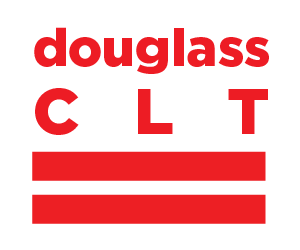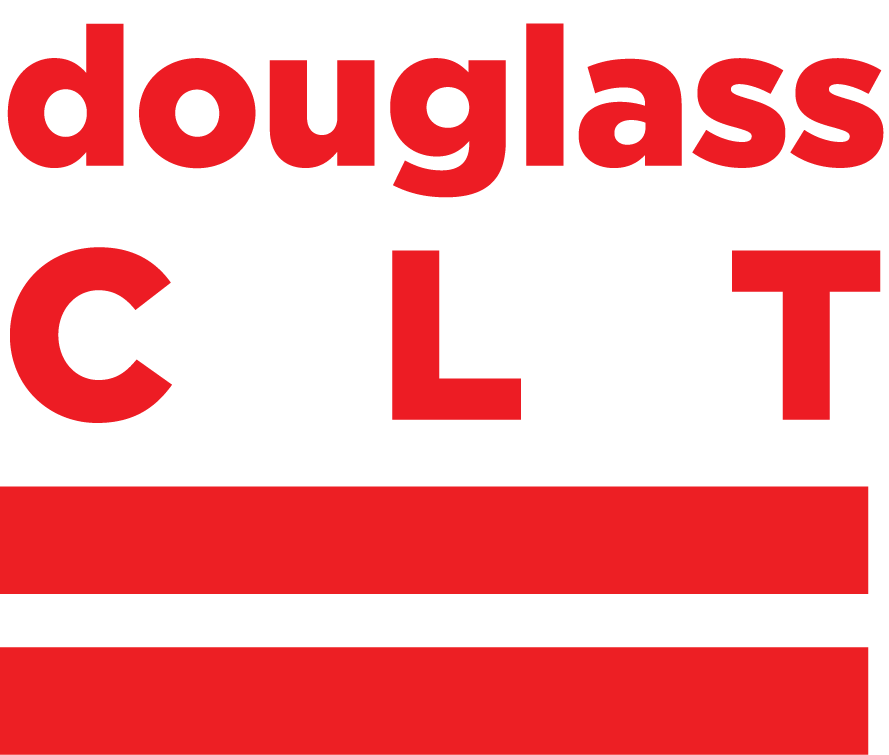Washington, D.C.’s Tenant Opportunity to Purchase Act has been an increasing thorn in the side of multifamily investors seeking to buy and sell apartment buildings in the District, but it has opened the door for a small, local nonprofit dedicated to preserving affordable housing to grow quickly.
TOPA gives renters in a D.C. multifamily building in the process of being sold the right to organize, form a tenant association and purchase the property themselves. The law has had its detractors over the course of its 42-year existence, but it has allowed the three-year-old Douglass Community Land Trust to build its portfolio and draw closer to its goal of securing affordability for roughly 750 units by the end of the decade.

“I do think that TOPA is an incredibly important part of the strategy,” Douglass CLT Executive Director Ginger Rumph said. “Organizing with the tenants, it just makes things that much stronger. It makes the long-term financial viability of the project that much stronger.”
The Douglass Community Land Trust was formed in 2019 through a partnership among several organizations, including Building Bridges Across the River and City First Bank, in part to preserve the affordability of communities around the under-development 11th Street Bridge Park. Since then, it has worked to convince private investors, the D.C. government and neighborhoods around the city that they’re serious about their ability to serve as a long-term partner for housing affordability.
To get there, the CLT has begun working with more tenant associations that have organized through TOPA. Its first deal was at the Savannah Apartments in Congress Heights, where the CLT partnered with the tenant association to work out a financing deal to turn the 65-unit multifamily rental property into a cooperative.
That deal gave the CLT more credibility in bidding on projects with developers, its leaders told Bisnow, assuring city leaders that the trust can be effective stewards of affordable housing.
“We’re competing with other organizations,” said Vaughn Perry, Douglass Community Land Trust’s president. “But we also have this novel idea of community land trust, and it’s a different type of financing.”
Rumph said two buildings with a combined 40 units in Ward 1 have reached out in recent weeks and are in active negotiations to partner with the Douglass CLT as it pursues its TOPA rights.
As more deals come to fruition, the trust’s leaders say they are able to secure greater philanthropic support, more projects and financial support from the city, and most importantly, bring their vision of community-focused stewardship to affordable housing to communities throughout the city.
“We are in support of residents, the indigenous residents that are living in their community [continuing] to be able to stay in those communities,” Perry said. “So it’s not that we are targeting a specific area, but wherever we can support residents through those efforts, we’re going to try to support them.”

The community land trust model traditionally works by acquiring a single-family home and the land underneath it in a community threatened by development like Historic Anacostia, then allowing members of that community to buy the house at a discounted rate while the trust maintains ownership of the ground lease. When the resident eventually decides to sell, they must do so at a discounted rate to the next community member, thereby ensuring the home remains affordable even as it changes hands.
But that model comes with a tradeoff in revenue, said Tony Pickett, CEO of Grounded Solutions Network, a nonprofit that connects land trusts around the country.
“You’re not able to capture as much revenue from the CLT shared equity transactions as you would in other types of situations, and so the operations of the CLT itself have to be subsidized in some way, shape or form,” said Pickett, who consulted with Building Bridges Across The River while it was working to spin off the land trust. “This is really at the heart of what’s needed in order to scale the approach.”
Pickett said leaders organizing the Douglass CLT determined early on that the trust should pursue development opportunities across the city to reach more opportunities more quickly and avoid concentrating low-income housing in Ward 8. Reaching 750 units in 10 years would allow the nonprofit to become self-sustaining, Pickett said.
“That was sort of the magic point at which [the trust] could sustain itself,” Pickett said.
Two years into its plan, the organization is currently on track to meet that goal. Beyond tenant cooperatives, the trust has also partnered with developers like CSG Urban Partners to bid on sites like the Langston-Slater Project in Truxton Circle, which the team won in 2021.
Perry said winning that bid was a sign that the D.C. government believed in the work the trust could do with tenants, which he and Pickett view as essential to the trust’s long-term financial sustainability.
“The ultimate goal is we want to be able to provide as much affordable housing for the residents that have been here as possible,” Perry said. “Whether that’s through naturally occurring [affordable housing], or whether that’s through new buildings, whether that’s through rentals or condos or homeownership, we want to use as many tools that are available.”

The trust has also rolled out innovative financial tools to steward the long-term viability of the cooperatives it has partnered with. Recently, it partnered with the D.C. Credit Union to offer a share loan program targeting potential buyers for units in co-ops who need loans in the range of $30K-$100K, a range that Perry said wasn’t available for buyers in the District previously.
“Anytime a unit becomes a part of the portfolio, we look at it as a long-term partnership between the organization and the tenants,” Perry said.
The CLT has also done extensive outreach in its core focus area, Ward 8 communities situated near the Anacostia River, which has yielded several projects, Rumph said, including an eight-unit project at 2327-2341 Skyland Terrace SE, a 15-unit rental to co-op conversion through TOPA in Anacostia, and a four-unit artist housing project in Fairlawn.
The trust also assumed responsibility for 154 units from City First Homes in 2020. The portfolio is scattered across the city, which has allowed the CLT to test out more of its stewardship programs, including the share loan.
Having a broad portfolio and a pipeline of projects allows land trusts to maintain the level of technical expertise required to pull off the difficult deals needed to make affordable housing work in an expensive city, said Robin Hacke, executive director and co-founder of the Center for Community Investment.
“We’re working against gravity,” Hacke said. “The market naturally does what the market naturally does, and we’re trying to make it perform tricks and do what it would not naturally do.”
Rumph and Perry stress that the Douglass Community Land Trust is focused on working with the communities it serves. One-third of the trust’s board is composed of residents from its communities, and Perry said the trust has maintained its focus on providing benefits to residents, including direct cash assistance programs, as it seeks to build its reputation throughout the city.
Perry believes that work is paying off; he says developers like CSG Urban and housing advocates working with tenants associations now reach out to the trust with proposals, instead of the other way around. He believes that will bring increasing levels of opportunity for the land trust over time.
“If we were getting 1,000 homes over the next 10 years, it still wouldn’t be enough to support the hardworking residents that have lived in this community for generations,” Perry said. “We understand that there’s going to be market-rate developments that are going to come … But we also have to look at ways that we can have development without displacement of the people that have been here.”

